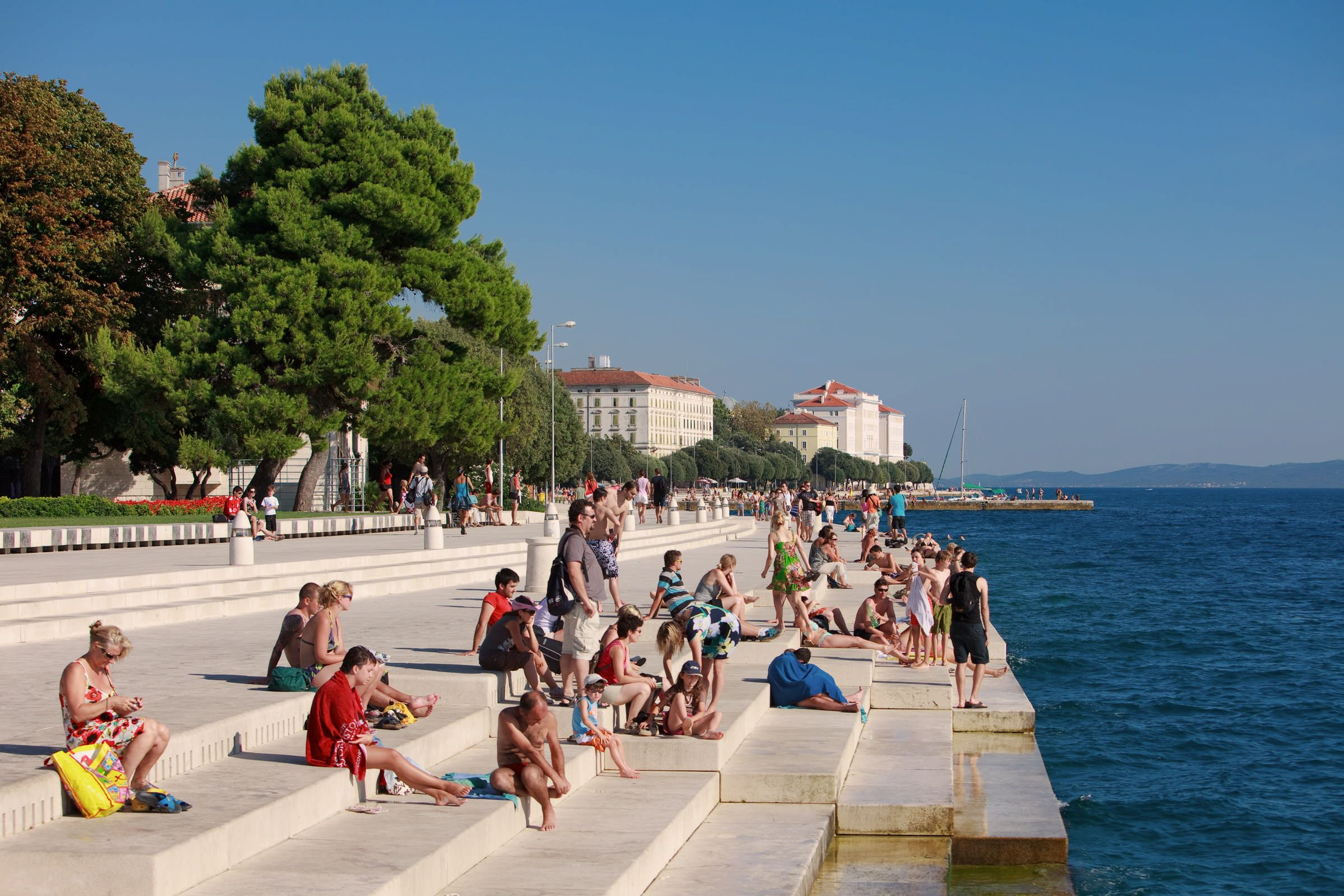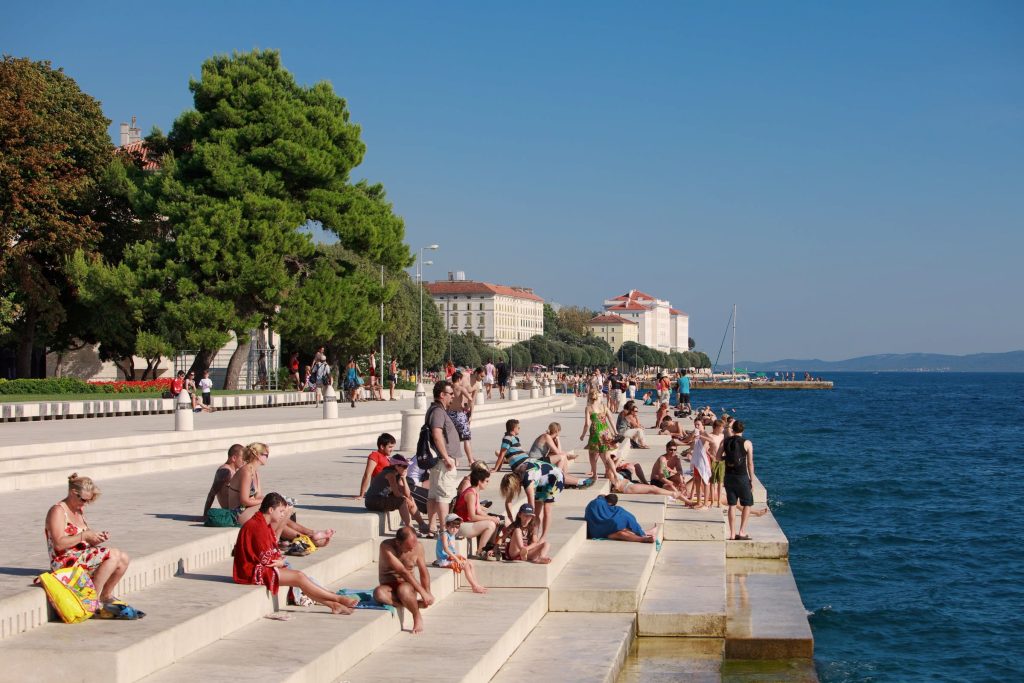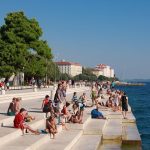
From the perspective of the average tourist, who comes from a country where there are more people infected with the new coronavirus than there are in Croatia, there are no obstacles to spending their holiday on the Croatian Adriatic, in a well-known destination.
As Poslovni Dnevnik/Marija Crnjak writes on the 14th of August, 2020, maybe Croatia should stop bragging about this year’s tourism results if it wants to continue at this same pace until the end of the season? It seems that other member states of the European Union are getting irritated at the fact that Croatia is managing to make money from their citizens, who should, in their view, instead be spending that money at home and helping their national economies recover instead of getting sunburn on the Croatian Adriatic.
Some are asking the question of how else we can interpret the decisions of certain countries to close their borders to Croatia, which has a more favourable epidemiological situation than most of the Mediterranean, as well as countries in the rest of Europe? Coronavirus has become a powerful excuse for protectionism, even in the European Union, which likes to describe itself wholeheartedly as anything but that, and it remains to be seen how, in the long-term, such behaviour which is neither transparent nor fair will pay off.
Kudos must be given to the countries that have issued vouchers to their residents to strengthen national tourism when the itch to get away begins. Croatia has good roads, and despite the problems, it has a decent health system, it behaved excellently in the first wave of the coronavirus pandemic, there were relatively few infected people and the vast majority of people respected and continue to respect the obligation to wear a mask.
From the perspective of the average tourist who comes from a country where there are more infected people than there are in Croatia, this all looks fantastic and makes a person feel safe. This led to as many as a million people entering Croatia in the first nine days of August, accounting for 70 percent of last year’s number of overnight stays in that same period. In July, Croatian tourism had a turnover of 60 percent when compared to the turnover of last year, which is also a lot considering that it was at that point when things were starting to open up again.
Millions of euros a day are leaking from our emitting markets into Croatia, a country outside of Schengen and the Eurozone, and some people like it less and less. So far, Croatia has been talking about what will happen with Slovenia, Germany, Austria, Hungary, then it was proverbially screwed by the Dutch, and now the Italians, among the hardest hit by the coronavirus pandemic, are back in the picture again, who are introducing mandatory testing for everyone who arrives from Croatia.
A Slovenian Government spokesman is once again threatening to put Croatia on the country’s red list. Although officially such decisions are made based on the assessments of epidemiological experts who don’t want to endanger the health of their own people or the sustainability of their own health system, it’s difficult to believe these arguments when looking at the figures. The Netherlands went the furthest in this regard, declaring Croatia a risky country almost four weeks ago, with the recommendation that all those arriving from Croatia be placed in self-isolation for two weeks upon their arrival in the Netherlands. They decided to make that move even though other European countries with a significantly higher number of infected per 100 thousand inhabitants, such as Spain and Great Britain, are on their list of countries safe for travel.
Looking at it in layman’s terms, if we look at the total number of cases of coronavirus and the number of newly infected people, it’s much easier for a Dutch person to become infected at home in the Netherlands while using public transport than in Porec on a campsite.
There have been very few infected tourists in Croatia
This fact along makes it difficult to shake off the impression that Croatia and indeed other nations are being judged by the mathematics of money, and not health. Namely, Croatia has about three million overnight stays a year from the Netherlands, and if half of those tourists came to us this summer, Croatia would gain and the Netherlands would lose about 100 million euros in revenue. These tourists are mostly passionate campers who will park their campers on the Dutch coast this summer, and the climate changes that have prolonged and warmed up the Dutch summer are helping them do just that. Spain isn’t such a threat to them, because there are no flights, and they don’t travel across the North Sea to Britain in the summer anyway.
The Italians kicked off Feragosto, and a good part of them headed for the Croatian part of the Adriatic, although there were still significantly less of them than there were last year. Italian tourism has suffered terribly this year, the spring season was completely devastated, and high hopes for revenue collection remains firmly on Italian tourists staying at home and spending their money in Italy. However, market analyses have shown that while more than two thirds of Italians plan to travel within the country in the coming months, and almost half of the respondents will shorten their travel plans when compared to the period before the coronavirus pandemic struck the enfeebled nation.
Still, every single little euro counts this season, and if the obligation to test on arrival from Croatia demotivates part of the Italian tourists to book accommodation in Croatia, then the Italian state goal has been achieved. At the same time, in the last ten days, 28 reports of infected tourists from four countries, Austria, Italy, Germany and Slovenia, have arrived through the European information system. When compared to the approximately 3.5 million tourists who visited Croatia by August the 10th, it does make one wonder just what the motives behind certain European countries have become. As for the so called European Union, perhaps its better to not take the name quite so literally.
For the latest travel info, bookmark our main travel info article, which is updated daily.
Read the Croatian Travel Update in your language – now available in 24 languages!
Join the Total Croatia Travel INFO Viber community.










